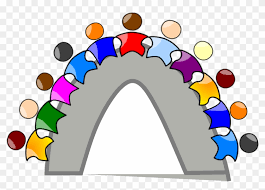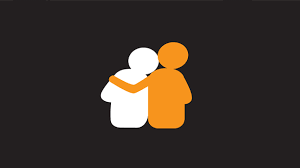Seek first to understand then to be understood Stephen Covey
Last month I participated in a virtual program sponsored by a national organization called Braver Angels. Their mission is to build bridges between people with different political views.
They believe that most of us want the same things: affordable health care, quality education, a good paying job, etc.…. We just have different ideas on how to achieve them.
But when we only believe that our ideas are right, or we judge or demonize others who think or behave differently, constructive communication will be difficult.
Whether we desire a more productive, collaborative workplace, or a safer, kinder world, building better relationships requires willingness and an ability to listen. And that takes practice.
THE PROBLEM
Listening is hard; it’s much easier to talk. We’re distracted by technology and multi-tasking; we have preconceived biases, perceptions, and judgements; and we often don’t think others have anything important to say.
WHY IT MATTERS
When we really listen, with curiosity and openness, we’re likely to notice areas of agreement and mutual interests- whether it’s from our personal or work lives. For example: We may disagree about how to deliver good customer service, but we agree that it’s important. Finding common ground provides an opening for conversation and connection.
Listening enhances empathy, the ability to understand the emotions, concerns, and needs of others. With empathy, we begin recognizing when people feel threatened by change, and that their angry reactions often camouflage underlying fears.
Empathy can be communicated through our attitudes or behaviors: remembering someone’s name; going out of our way to help someone; asking constructive questions when someone is confused or upset.
Through empathy, we build trust and respect, reduce tensions, encourage openness, and create environments conducive to collaborative problem solving.
SKILLS:
Empathy is innate as well as learned, so practice will make it stronger. What follows are some suggestions to strengthen empathy:
Practice Self-Forgiveness: Research shows that when we forgive and accept our own imperfections—weaknesses, mistakes, failures— we are more able to be open, accepting, and empathetic with others.
Role Play: During the Braver Angels program, I participated in a role play activity. Since we were paired with a partner who shared our political views, one of us had to represent the opposing political viewpoint (red or blue). Why? To practice listening when conversations become challenging. To fully immerse ourselves into the opposing view, it was helpful to reflect: How would I feel if I were that person? What would I expect or want if the roles were reversed? What else could be true—about their actions, intentions?
Later when the group debriefed, a few people acknowledged that they still had difficulties understanding how others could behave or think in certain ways. Yet most agreed that role playing—putting themselves in someone else’s shoes — increased understanding.
Listen to People’s Stories: Most people are fighting battles we cannot see. When we listen to their stories, we gain insights into who they are and their life experiences. The more we see ourselves in their stories, the more relatable they become. Leaders who shared their personal stories in the workplace reported that employees viewed them as being more “open “and “human.”
I’m always interested in other people’s success stories, regardless of their profession, especially those who’ve made a comeback from difficulties. I not only enjoy learning about their successes, but how they handle setbacks and failures. Learning from and about others through their stories provides insight and guidance as we all try to navigate our own journeys.
Relationships in the workplace matter, and communication—particularly listening –is key. But to become a skilled listener takes practice. So, the next time you encounter a challenging conversation, before you respond, you might want to pause and ask yourself: how would I feel if it was me?